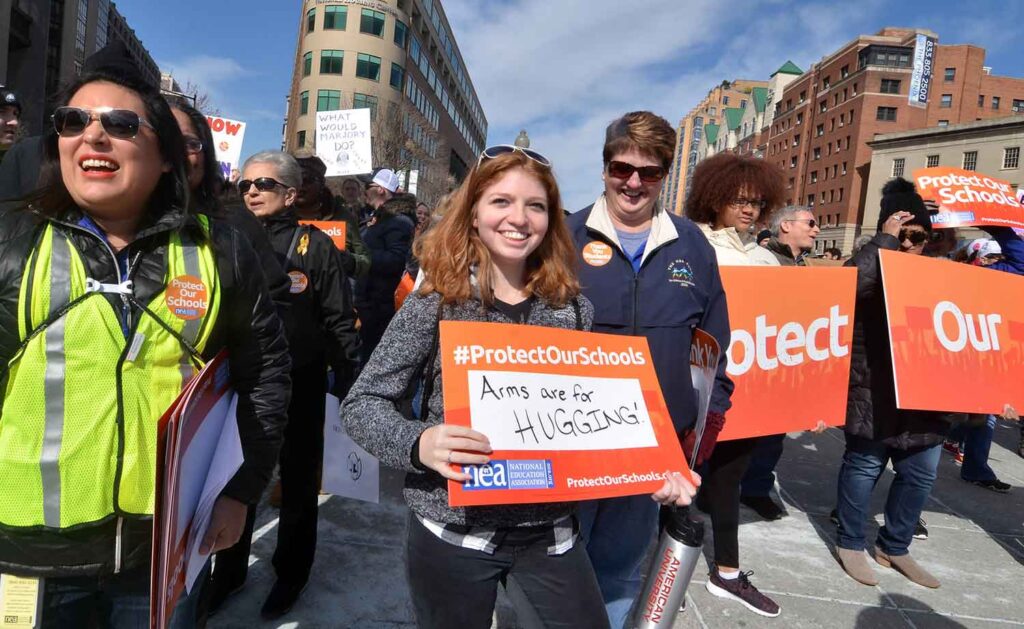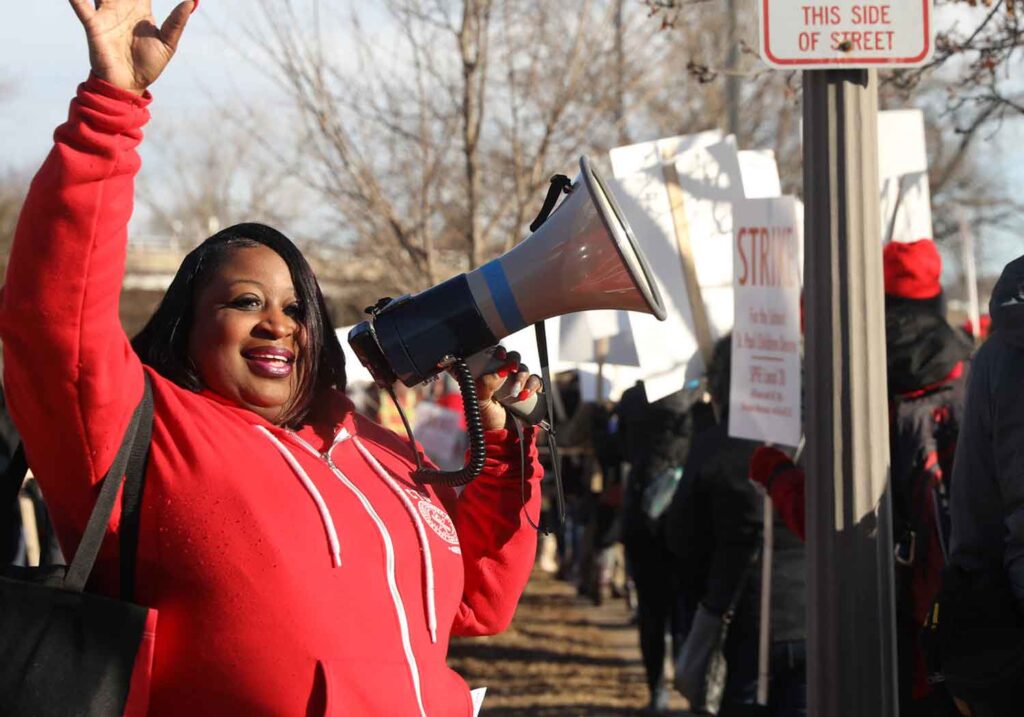With more than 3 million members, residing in every single congressional district, NEA is the largest labor union in the United States and the world’s largest professional association of educators. We are the strongest force for public education in the country.
Public education is the cornerstone of American democracy. From the classroom to the ballot box, NEA is dedicated to safeguarding our democracy.
NEA members, together, have the power to stand up for strong public schools and every community. Now, as we continue to recover from the pandemic, and the freedom to learn and teach honest and accurate history is under threat, the public leadership of NEA members is essential.
In 2020, the United States faced a crisis and NEA members met the moment. We helped defeat an incumbent president and elect President Joe Biden and Vice President Kamala Harris and other allies up and down the ballot.
We won tremendous victories, resulting in historic investments in public education and significant progress for all Americans. The American Rescue Plan and Bipartisan Infrastructure Bill are major investments in our schools and in our communities. We’ve made incredible progress on public service loan forgiveness, fighting child poverty, and strengthening the capacity of Historically Black Colleges and Universities (HBCUs). In each state, NEA and our affiliates have led the efforts to hold politicians accountable and make sure these federal investments are implemented effectively, so that funding reaches our classrooms and students have the learning opportunities and safe environments that they deserve.
In 2022, we helped elect candidates up and down the ballot—from governors’ offices to the U.S. Senate, to local school boards—who support educators and students. Our allies have championed public education and made significant achievements on universal school meals, mental health support, early childhood education, gun violence prevention, and protecting the freedom to learn.
In 2024, NEA members are campaigning to strengthen public education and secure the future of our democracy. Up and down the ballot, we’re defending the rights of our students, our fellow educators, and our families.
With our allies in office, we have taken key steps. But there is more work to do.

We continue to face significant challenges. Across the country, we are facing new efforts to undermine the right to vote, limit collective bargaining rights, and curtail our students’ freedom to learn and NEA members’ ability to teach the truth. Even while our communities—educators, parents, students, and neighbors—are pulling together to support public education, some politicians are trying to defund public education with voucher schemes and irresponsible tax cuts for the wealthy.

This election cycle, NEA members will work hard to support candidates who share our values at all levels of government. From the White House to the U.S. Senate and House, to governors’ offices, state legislatures, and school boards, we are ready to hold elected officials accountable and support educator-recommended candidates on the campaign trail.
Want to do more?
Here are some steps you can take to ensure that every student gets a quality education.


